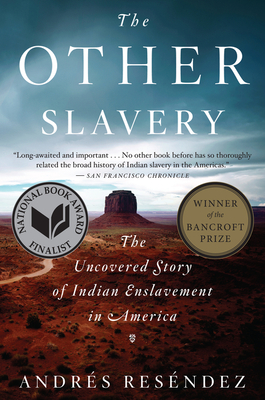The Other Slavery: The Uncovered Story of Indian Enslavement in America
Description of The Other Slavery: The Uncovered Story of Indian Enslavement in America
NATIONAL BOOK AWARD FINALIST | WINNER OF THE BANCROFT PRIZE. A landmark history—the sweeping story of the enslavement of tens of thousands of Indians across America, from the time of the conquistadors up to the early twentieth century.
Since the time of Columbus, Indian slavery was illegal in much of the American continent. Yet, as Andrés Reséndez illuminates in his myth-shattering The Other Slavery, it was practiced for centuries as an open secret. There was no abolitionist movement to protect the tens of thousands of Natives who were kidnapped and enslaved by the conquistadors.
Reséndez builds the incisive case that it was mass slavery—more than epidemics—that decimated Indian populations across North America. Through riveting new evidence, including testimonies of courageous priests, rapacious merchants, and Indian captives, The Other Slavery reveals nothing less than a key missing piece of American history.
For over two centuries we have fought over, abolished, and tried to come to grips with African American slavery. It is time for the West to confront an entirely separate, equally devastating enslavement we have long failed truly to see.
“The Other Slavery is nothing short of an epic recalibration of American history, one that’s long overdue…In addition to his skills as a historian and an investigator, Résendez is a skilled storyteller with a truly remarkable subject. This is historical nonfiction at its most important and most necessary.” — Literary Hub, 20 Best Works of Nonfiction of the Decade
““One of the most profound contributions to North American history.”—Los Angeles Times


